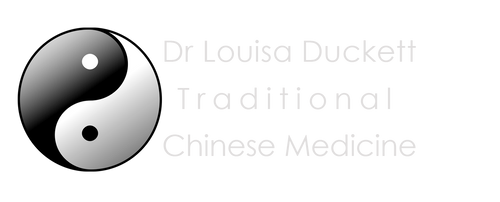Acupuncture
 Acupuncture is a safe and effective treatment that. can address a number of health complaints. Philosophically it is a holistic approach to health that works by addressing the energetic imbalances in the system. Energy or "Qi " as the Chinese understand flows through every aspect of our life. Qi is what gives energy to the body; for instance the mitochondria in our cells are really engines of qi or energy production. If this energy production, or circulation of qi gets disrupted illness can follow. The acupuncture system is the framework that intercepts with the blocked energy system.
Acupuncture is a safe and effective treatment that. can address a number of health complaints. Philosophically it is a holistic approach to health that works by addressing the energetic imbalances in the system. Energy or "Qi " as the Chinese understand flows through every aspect of our life. Qi is what gives energy to the body; for instance the mitochondria in our cells are really engines of qi or energy production. If this energy production, or circulation of qi gets disrupted illness can follow. The acupuncture system is the framework that intercepts with the blocked energy system. How does Acupuncture Work?
Fine needles are inserted in specific points along the body that either directly relate to or influence the disorder. By stimulating the body at particular points; fluids can be redistributed, or the body encouraged to generate red blood cells, mediate pain and or increase circulation to an area to accelerate healing (amongst other things).
Does Acupuncture Hurt?
Acupuncture needles are very fine pins, much smaller than needles used for injections. Usually a small sensation is felt upon insertion followed by a kind of dull tingling, a sensation known as "De Qi". Once the pins are in many people experience a sensation of relaxation and well being, some even experience sensations of energy moving through the body.
Why Does My acupuncturist put points in places that are irrelevant to my problem?
Often an acupuncturist will use acupuncture points that are distal to where your ailment is, for instance you may have a headache and you will receive points in the feet. Because the meridians run longitudinally along the body a distal point may be the best one for influencing the meridian system. Often a mixture of distal and local points are used.
Why Does my acupuncturist put points in one side of my body and not the other?
Sometimes a practitioner works bi laterally, that is , she uses exactly the same points on both sides of the body. At other times she may select different points on each side, it really depends on what the presenting problem is.
What can acupuncture be used for?
Studies show acupuncture can help a wide variety of pain conditions including back and neck pain, migraines, sciatica, osteoarthritis, tennis elbow, fibromyalgia or trigeminal neuralgia.
Acupuncture is also effective for the treatment of disorders like allergic reactions, digestive disorders, respiratory disorders, fatigue, symptoms of, autoimmune disease, women’s health issues (eg infertility, morning sickness, menstrual problems), anxiety, mood and stress-related disorders, sleep issues and addictive behaviours. It also promotes general health and prevents or limits the progression of disease.
What Can You Do to Assist Your Therapy?
Your acupuncturist is assisting you in gaining and maintaining optimum health. Remember that it is what you do between treatments that will ensure your road to recovery. Try to identify what you would like for a health outcome, and use your treatments to boost your overall recovery. Look at your lifestyle factors that may be aggravating your health and wellbeing.
set personal health goals
get regular exercise and movement of the body
eat nutritious food and work towards cutting inflammatory ones
drink plenty of water according to thirst i.e don't over do it
taking up an interesting recreational activity
maintaining a positive mental attitude
ensuring you get adequate rest and relaxation
Cut down/ or eliminate caffeine
maintain a balanced social life
What Does Acupuncture Treat? There is a wide range of disorders than can be treated. You are advised to consult your Acupuncturist for an opinion. The WHO (World Health Organisation) in December 1979 recognised a number of disorders that have been successfully treated by acupuncture, including
Neurological – headaches, migraines, insomnia, nervous tension, neuralgia, tinnitus.
Cardiovascular – high/low blood pressure, fluid retention, chest pain, cold hands/feet, stroke/ post stroke recovery.
Respiratory – bronchial asthma, bronchitis, tonsillitis, rhinitis, sinusitis, hayfever.
Digestive – IBS, SIBO, chrones, diahorrea, constipation, poor absorption of nutrients, weight control, bloating, indigestion, reflux etc.
Gynaecological & Obstetric – PMT, painful/heavy/irregular/absent periods, hormonal disturbances, menopausal disorders, morning sickness, conception, pregnancy.
Skin – eczema, dermatitis, psoriasis, acne, hair loss.
Musculoskeletal – shoulder, ebow, knee,wrist.
Sporting Injuries –
Psychological – anxiety, depression.
Immune - hayfever, auto immune, leaky gut.
